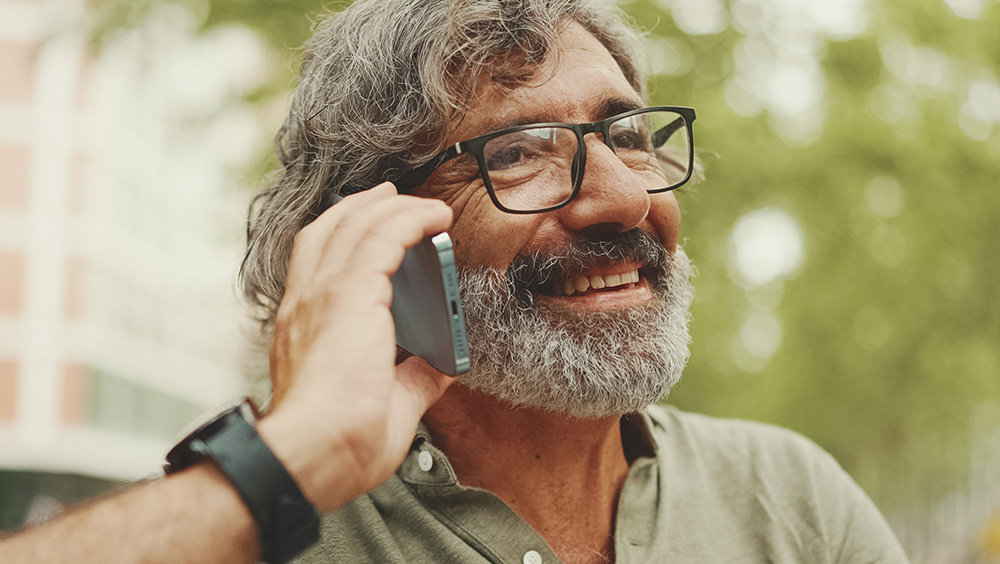
Why does hearing loss get worse as we age?
Age-related hearing loss is common among older adults. According to the National Institutes of Health, it affects roughly 30% of people aged 65-75 — and nearly half of people older than 75.
Adjusting to hearing loss can be truly difficult, but there are preventive measures, resources and devices that can help. The experts at the USC Hearing and Balance Center, part of the USC Caruso Department of Otolaryngology – Head and Neck Surgery and Keck Medicine of USC, explain why hearing loss happens, how to recognize the signs and what you can do to manage it.
What causes hearing loss?
The ear comprises three main sections: the outer ear, the middle ear and the inner ear.
The inner ear contains “hair cells” that turn incoming sound waves into nerve signals. Those signals then travel to the brain.
Over time, the hair cells break down from normal wear and tear. When enough of them are damaged or lost, the brain can no longer make sense of incoming sound waves.
Signs of hearing loss
Age-related hearing loss is progressive and can’t be reversed, so it’s important to recognize it early.
Common signs include:
- Frequently asking others to repeat what they said
- Keeping the volume high on your TV or smartphone
- Not hearing timers, alarms or doorbells
- Not being able to register high-pitched sounds
What you can do
If you are experiencing symptoms of aged-related hearing loss, you can see your family doctor first if you like. They can assess your symptoms and see if anything else, such as a blockage or infection, could be the culprit.
Your doctor will most likely refer you to an audiologist (for a hearing test) and an otolaryngologist for a more thorough exam. Alternatively, you can just come in to see them immediately.
Once the otolaryngologist confirms the cause and severity of your hearing loss, they can set up any further referrals you might need and offer guidance on assistive devices, services and other resources. They may include:
- Voice-to-text apps
- Amplifiers for timers and alarms
- Hearing aids
- Low- or no-cost courses in American Sign Language (ASL)
- Cochlear implants
- Service dogs trained to assist people with significant hearing loss
No matter how you or a loved one may wish to move forward, the specialists at the USC Hearing and Balance Center will work as a team to provide what you need — including ways to reconnect with the sounds you cherish and rely on.
Topics
